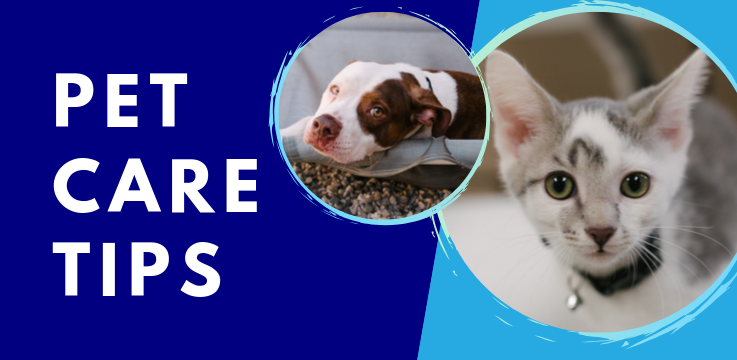As an Amazon Associate I earn from qualifying purchases.
Cats make wonderful companions and bring joy to many homes. To keep them happy and healthy, proper care is essential.
Providing the best care for your feline friend involves understanding their unique needs. Cats require a balanced diet, regular grooming, and plenty of playtime. They also need a comfortable, safe environment to thrive. With the right tips and knowledge, you can ensure your cat leads a fulfilling life.
This blog will explore essential pet care tips for cats. From nutrition to play, we’ll cover all you need to know. Whether you’re a new cat owner or an experienced one, these tips will help you provide the best care for your furry friend. Let’s dive in and discover how to keep your cat happy and healthy!
Choosing The Right Cat
Selecting the perfect cat involves considering its personality and your lifestyle. Research cat breeds to find the best match. Pay attention to the cat’s health needs and care requirements.
Breed Considerations
Different cat breeds have different needs. Some cats are very active. Others are more relaxed. Select a breed that fits your lifestyle. A busy person may prefer a low-energy cat. Families with kids might want a playful breed. Research is key. Take time to learn about each breed. Visit shelters and talk to experts.
Adopting Vs. Buying
Adopting a cat gives a home to a pet in need. It can be more affordable. Many cats in shelters need loving homes. Buying from breeders can be more costly. But it may offer more breed options. Both choices have benefits. Think about your budget and your needs. Make sure to choose responsibly.

Credit: www.cityoffortwayne.org
Feeding Your Cat
Cats need a diet rich in protein. They are carnivores. This means they need meat. A balanced diet includes vitamins and minerals. Avoid giving too many treats. Too many can make your cat fat.
Wet food keeps your cat hydrated. It has more water. Dry food helps clean teeth. It is easier to store. Many cats like a mix of both. Choose high-quality food. Avoid fillers and by-products.
Homemade diets can be tricky. It is hard to balance nutrients. Some foods are unsafe. Chocolate, onions, and garlic are toxic. Always consult a vet. They can help plan a safe diet.
Grooming Essentials
Brushing your cat helps remove loose fur and dirt. Use a soft brush for short-haired cats. Long-haired cats need a comb with wide teeth. Brush gently to avoid hurting your cat. Start from the head and move to the tail. Brushing often keeps the coat shiny and healthy.
Trim your cat’s nails every few weeks. Use a clipper made for pets. Hold the paw and press gently to extend the nails. Trim the tip, avoiding the quick. The quick is the pink part inside the nail. Cutting it can cause pain and bleeding. Reward your cat with a treat after trimming.
Bathing a cat can be tricky. Use a cat-safe shampoo. Fill the tub with a few inches of warm water. Wet your cat slowly and apply the shampoo. Rinse thoroughly to remove all soap. Dry with a towel and keep your cat warm. Most cats don’t need baths often. Only bathe if they are very dirty.
Creating A Safe Home Environment
Hide all small objects. Cats love to play with them. Secure loose wires. Cats can chew them. Cover trash cans. Cats might get into them. Remove any toxic plants. Some can be harmful. Close windows and screens. Cats might fall or escape.
Food and water bowls are important. A litter box is a must. Get a scratching post. Cats need to scratch. Toys keep them active. A comfy bed helps them rest. Grooming tools are also necessary.
Indoor cats are safer. They live longer. Less risk of disease. Outdoor cats explore more. They can hunt. But they face more dangers.
Health And Wellness
Caring for your cat involves regular vet check-ups, balanced nutrition, and daily grooming. Ensure a safe and playful environment for your feline friend.
Regular Vet Visits
Cats need regular vet visits to stay healthy. Vets check for any hidden problems. They also give advice on the best care. It’s important to schedule visits at least once a year.
Vaccinations
Cats need vaccinations to stay safe from diseases. Vets can provide a schedule for these shots. Keeping up with vaccinations protects your cat and other pets.
Common Health Issues
Cats can have common health issues. These include fleas, worms, and dental problems. Watch for signs like itching, weight loss, or bad breath. Early treatment helps keep your cat healthy.

Credit: www.pinterest.com
Exercise And Play
Cats love interactive toys. These toys keep them busy. They also make your cat happy. Toys with feathers are fun. Balls and mice toys are great too. Laser pointers are very exciting. But, never shine it in their eyes. Always store toys safely after playtime.
Playing daily is important for cats. Make a simple play schedule. Spend 15 minutes each session. Morning and evening are the best times. Use different toys to keep it fun. Routine play keeps cats healthy. It also stops them from getting bored.
Outdoor time can be fun for cats. Use a cat harness and leash. Always watch them closely. Let them explore the yard. Climbing trees is great exercise. But, keep them safe from cars and other animals. Always bring them back inside after play.
Litter Box Maintenance
Maintain your cat’s litter box by scooping daily and changing the litter weekly. Clean the box with mild soap to keep it fresh.
Choosing The Right Litter
Choosing the right litter is important. Clumping litter is often preferred. It makes cleaning easier. Some cats prefer unscented litter. Others might like scented options. Test different types to see what your cat likes. Dust-free litter can be better for sensitive cats. Avoid harsh chemicals. They can irritate your cat’s paws.
Cleaning Routine
Scoop the litter box daily. Remove waste to keep it clean. Change the litter weekly. This prevents bad smells. Wash the litter box with mild soap. Rinse it well. Dry it before adding new litter. Check for clumps and debris often. Keeping it clean helps your cat stay healthy.
Addressing Litter Box Issues
Cats may avoid dirty litter boxes. Stress can cause litter box issues. Try a different location for the box. Ensure privacy for your cat. Use multiple boxes if you have more than one cat. Consult a vet if problems persist. They can rule out health issues.
Behavior And Training
Cats have unique behaviors. They use body language to show feelings. A raised tail means happiness. A low tail means fear. Purring usually shows contentment. Hissing shows anger or fear. Understanding these signs helps in bonding with your cat.
Training cats takes patience. Start with simple commands. Use treats as rewards. Positive reinforcement works best. Never punish your cat. It can cause fear. Consistent training sessions are key. Keep them short and fun.
Aggression in cats can be tricky. First, identify the cause. It can be fear, pain, or territorial issues. Provide a safe space. Use calming techniques. Play with your cat to release energy. If aggression persists, consult a vet.

Credit: www.catawbaanimal.com
Frequently Asked Questions
How Often Should I Feed My Cat?
Cats typically need to be fed twice a day. Ensure meals are balanced and nutritious. Consult your vet for specific dietary needs.
What Are Common Signs Of A Sick Cat?
Common signs include lethargy, vomiting, diarrhea, and changes in appetite. Monitor your cat and consult a vet if symptoms persist.
How Do I Keep My Cat Entertained?
Provide toys, scratching posts, and interactive playtime. Rotate toys frequently to keep your cat engaged and stimulated.
What Is The Best Way To Groom My Cat?
Brush your cat regularly to reduce shedding and prevent matting. Use a cat-specific brush and be gentle to avoid skin irritation.
Conclusion
Caring for your cat involves simple, consistent actions. Regular vet visits keep them healthy. Balanced diets ensure they get the right nutrients. Clean litter boxes help avoid infections. Playtime and affection strengthen your bond. Each small step makes a big difference.
Your cat will be happy and thrive. Remember, a happy cat means a happy home. Keep these tips in mind for a loving, healthy relationship with your feline friend.
As an Amazon Associate, I earn from qualifying purchases.

